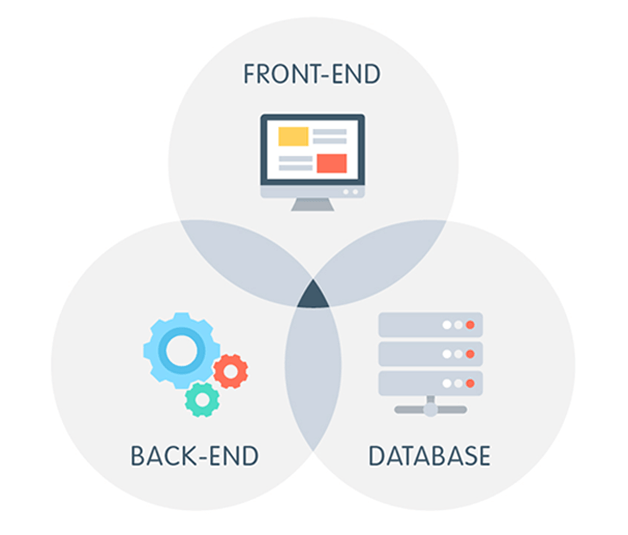Full Stack Development


As a company, building apps with complete frontend and backend support is extremely important. Full-stack development refers to the complete development of apps, focusing on the small details. The front end usually consists of the details visible to the user, like the app interface, updates and settings
The back end usually involves the business logic behind the app and how it can be developed better for smooth usage. A full-stack developer is well-equipped to work on both ends and develop the best app for convenient usage.

Front-End Development
Front-end Development involves developing the app's user interface, UI, user experience, or UX. It usually includes using scripts like Java, HTML, CSS, and others. Our expert team can handle this for you without any hassle. We also protect your app and ensure there are no vulnerable cyber attacks.
Back-End Development
The back end must also be well-developed for an app to be functional. We operationalize the server enough to maintain the app's efficiency. We use scripts like Ruby, Django, Springs Boot and more.
API Development
Application Programming Interface allows smooth communication between the different variants of computer software. We use competitive technologies like RESTful APIs and GraphQL to maintain industry standards.
Databases
The major working component of full-stack development is dealing efficiently with databases. It will help one in storing and retrieving data as easily as possible. Usually, for this process, we use relational databases like MongoDB, Cassandra, MySQL and others.
.Net & Azure Development Services
Azure is a cloud platform that is designed to ensure simplification in the process of building modern and advanced applications. We at iTechOps, carters to a team of expert engineers who have created a range of sites for the development of the various services using .Net Stack and Azure Cloud Platform.
Do You Need Full Stack Developer?
In iTechOps, Full-stack development refers to the complete development of apps, focusing on the small details.
Talk to a Full Stack Development ExpertFAQ
What is the benefit of Full-stack development for an organization?
- Full-stack development allows the developer to operate from both the front and back end of an application. This versatility leads to a comprehensive understanding and deployment of software projects. Having Full-stack development in an organization ensures various benefits such as:
- Streamline processes,
- Foster better communication between teams,
- Reduce dependency on many specialists,
- Increase efficiency and agility in product development.
What is the impact of Full-stack development on the timeline and efficiency of a project?
- Full-stake developers have expertise in both front and backend technologies. Developers can operate on many aspects of a project in parallel. Such experience leads to faster development cycles. This integration of operations shreds away communication gaps and escalates the decision-making process. Such a collective effort streamlines the development process. Hence, it increases efficiency and quicker product launches.
What are the essential competencies of a Full Stack Developer in an organization?
- A Full Stack Developer must have a diverse skill set that includes:
- Front-end technologies: HTML, CSS, JavaScript, and frameworks (e.g., React, Angular).
- Back-end technologies: databases (SQL or NoSQL), server-side scripting (Node.js, Python, Ruby),
- and knowledge of web servers and hosting environments.
- Moreover, you must look for knowledge:
- version control,
- security standards,
- and problem-solving talents as a Developer from a Full-stack development company.
Does modern Full-stack development also impact team dynamics and collaboration?
- Yes, Full-stack development has a huge impact on team dynamics and collaborative efforts. Developers mastering entire stack have a better understanding of team roles. Thus, they can communicate for a better outcome. This shared understanding facilitates more fluid cooperation between front-end and back-end teams. Hence establishing a more unified work environment and driving cross-functional learning and innovation.
Are there any implications of implementing Full Stack Development service in an organization?
- Though employment of full-state development brings along a spectrum of benefits. There are a few minor implications an organization can expect. such challenges of using modern Full-stack development are:
- Need of the depth of expertise required in many technologies.Searching for individuals proficient in both front-end and back-end technologies.
- Strategic hiring and upskilling initiatives.
- Workload balancing.
